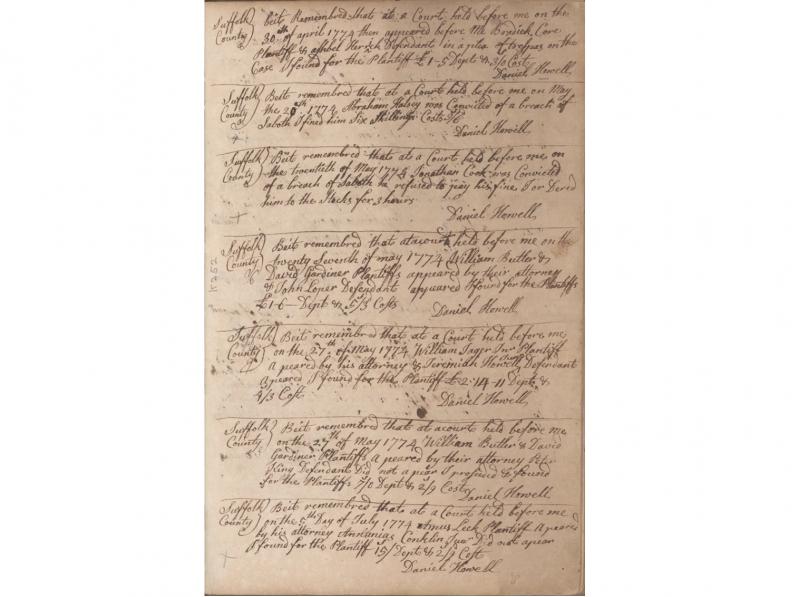"Be it remembered" opens each case recorded in this book, which was kept by two Suffolk County justices of the peace over the course of 42 years, from 1774 through 1816. The role of justice of the peace came from England and granted local laymen the authority to preside over legal matters of criminal, civil, and moral natures. Each town had one, each appointed by the governor and expected to keep his own records of the cases he heard. As a result, very few records survive from such New York justices during the colonial and early republic eras.
Daniel Howell (1725-1803) of Bridgehampton recorded the book's first entries in April 1774. His records paused in 1776 before resuming in 1784, reflecting his flight from British-occupied Long Island, as he joined the many refugees in American-controlled Connecticut. Howell heard and decided cases from people throughout Suffolk County, ranging from property damage, to swearing, to missing church services on Sunday.
Howell's sentences for these trials ranged from fines to time in the stocks. The first case he heard upon his return to Long Island was brought by Jane Culver, who accused Sag Harbor's John Jermain (1758-1819) of fathering her child outside of marriage.
In July 1790, the records paused again before resuming in 1804 in the handwriting of Stephen Halsey (1757-1837). Halsey also resided in Bridgehampton. During the American Revolution, he served in the First Regiment of the Suffolk County Militia under Col. Josiah Smith and later as a sergeant under Col. Samuel Drake (1730-1793).
In 1807, Oliver Cuffy accused Jacob Pott, both described as "mulatto," of theft of a silver watch, resulting in Pott's being sent to the county jail for three months. In the 26 years of cases documented in this book, Halsey handled disputes of trespassing, assault, child support, and theft. He reserved the last page to record the four weddings he presided over.
Moriah Moore is a former librarian and archivist with the East Hampton Library's Long Island Collection.




